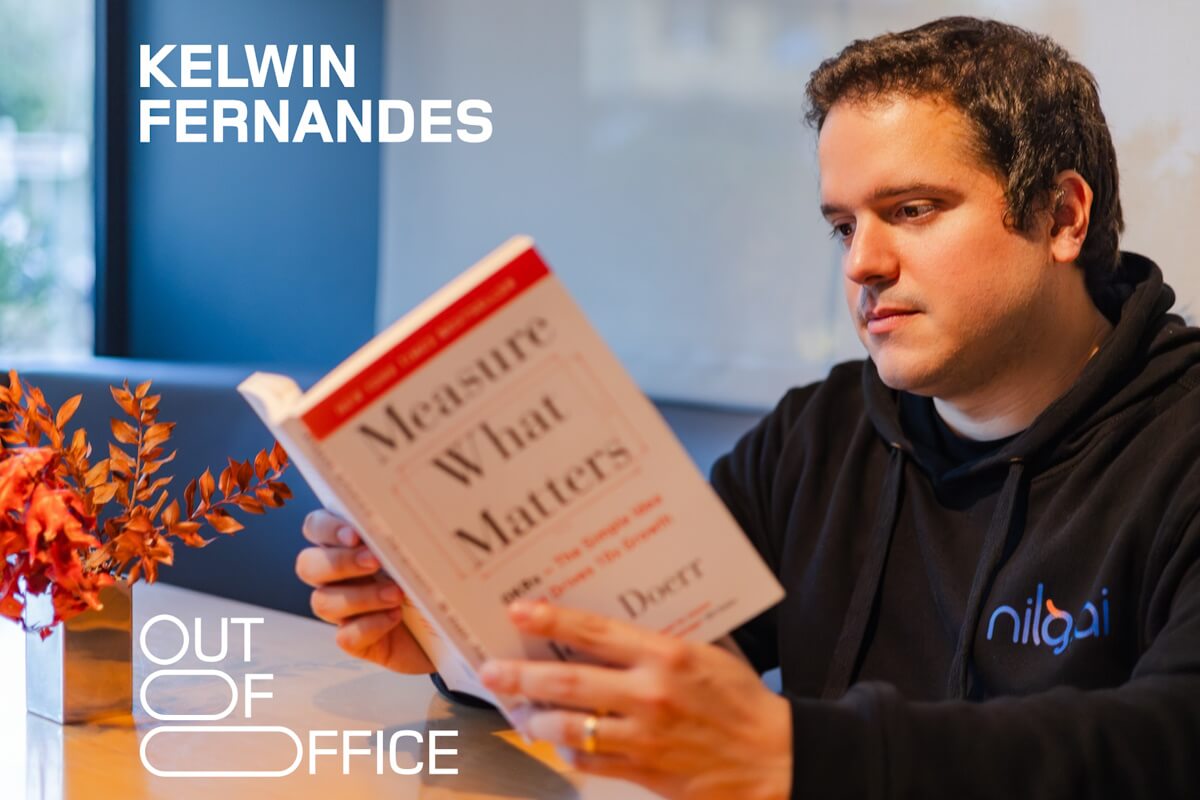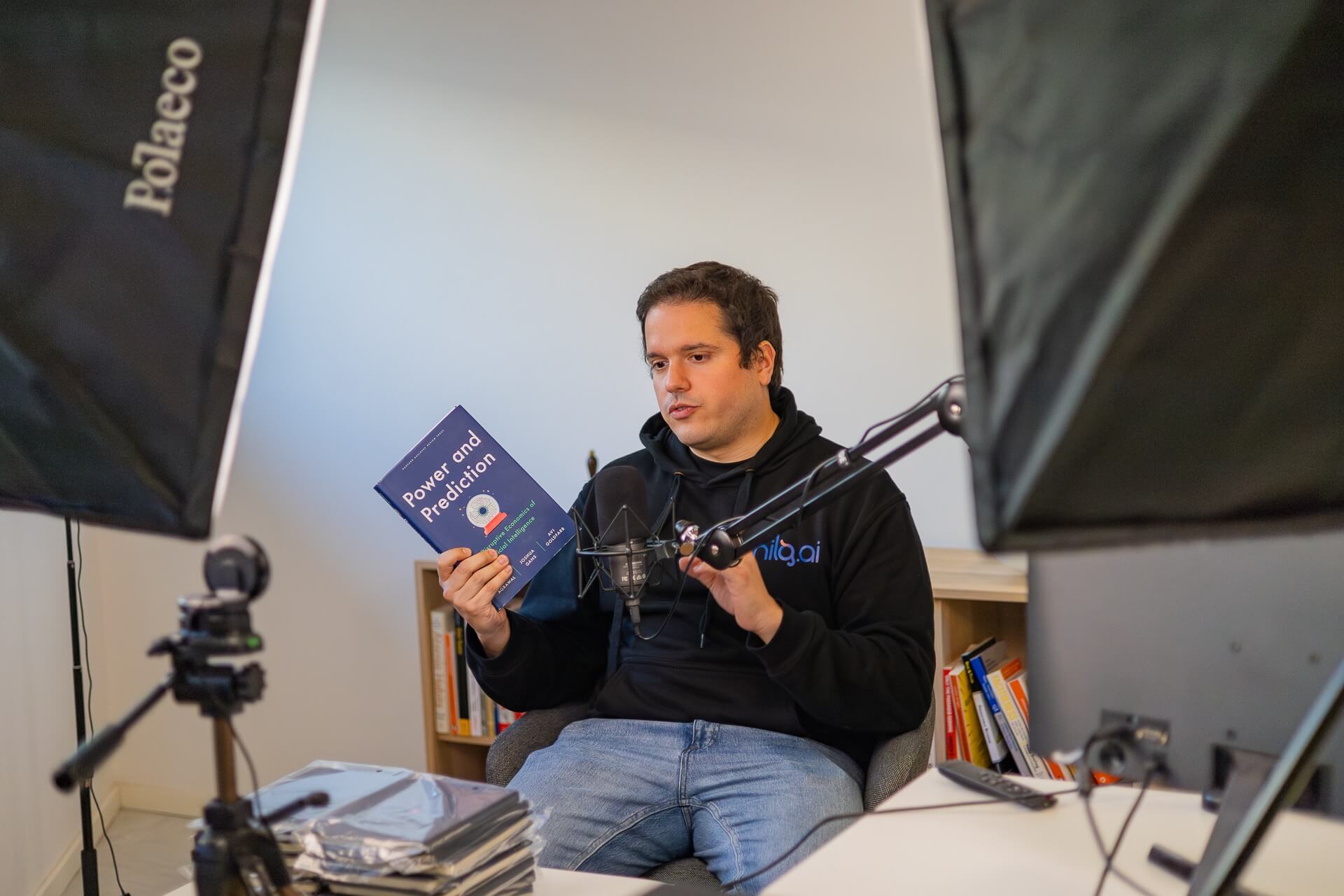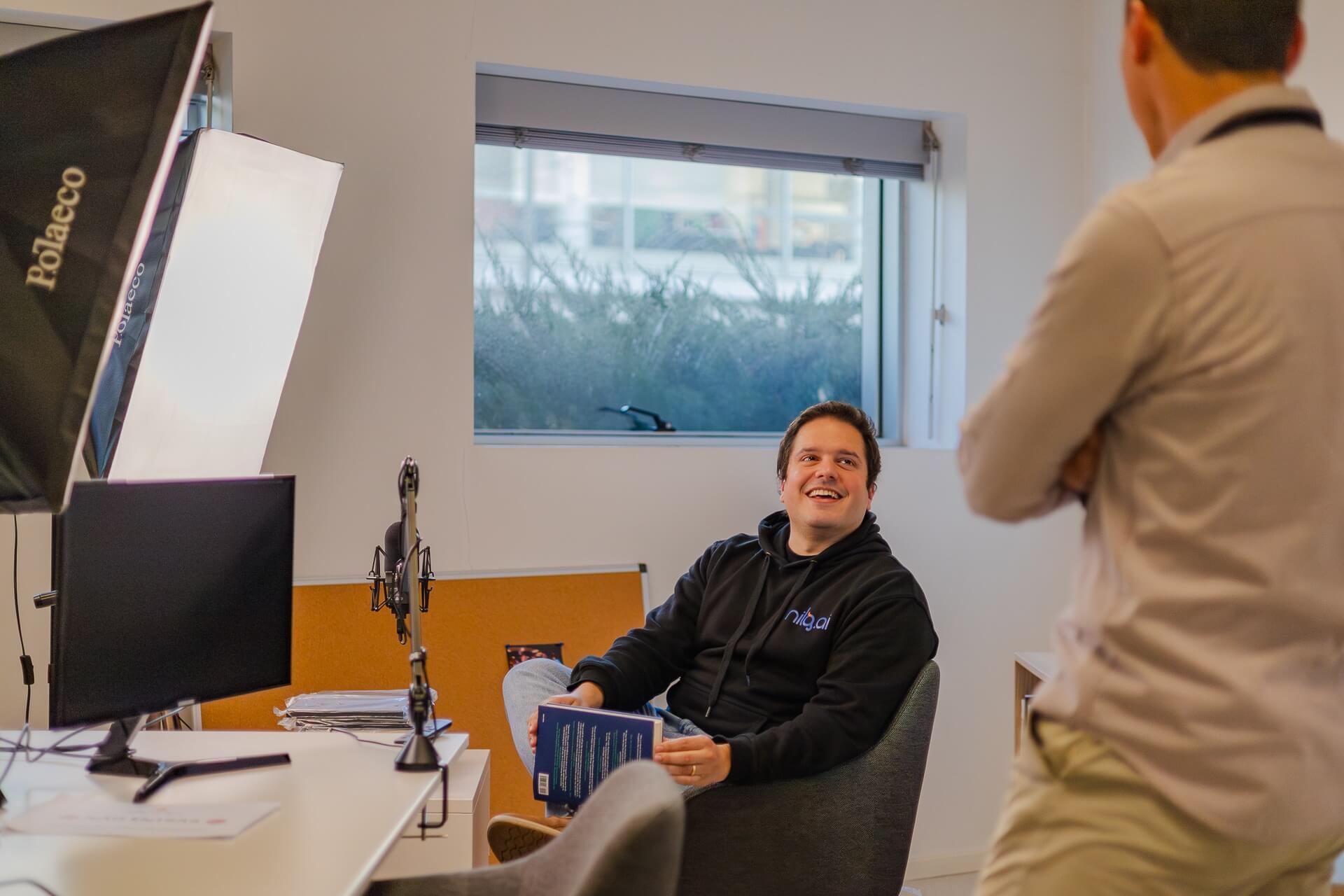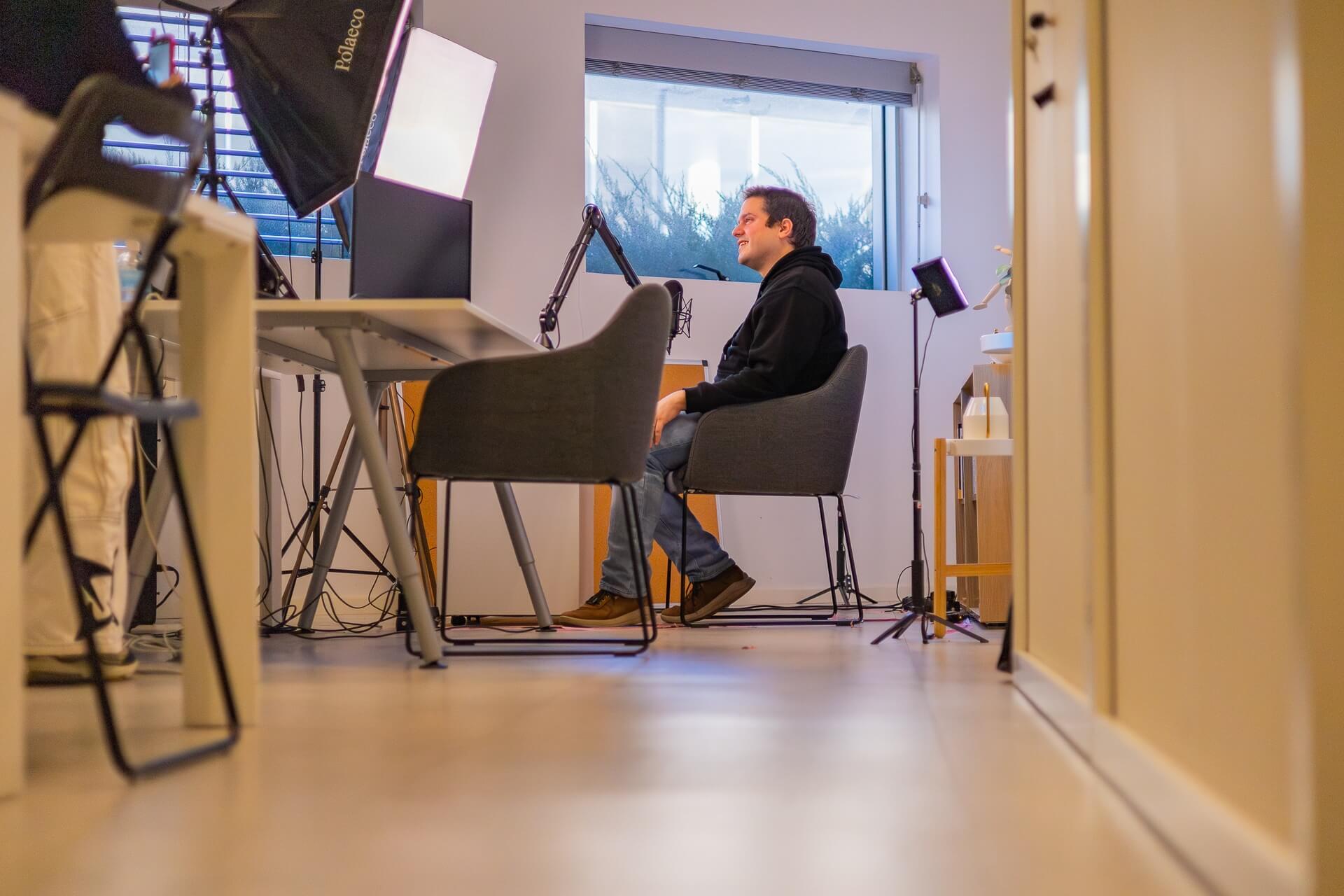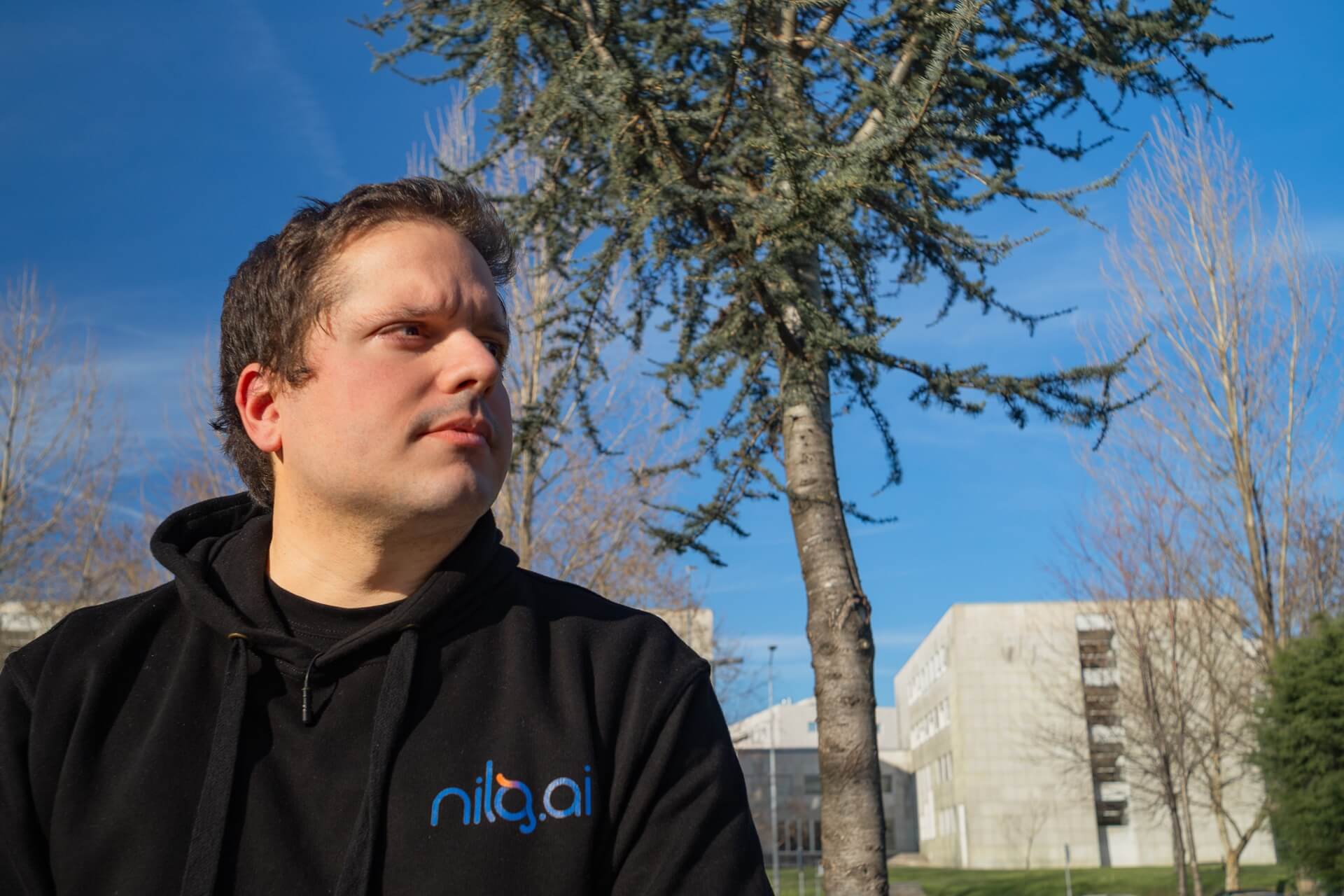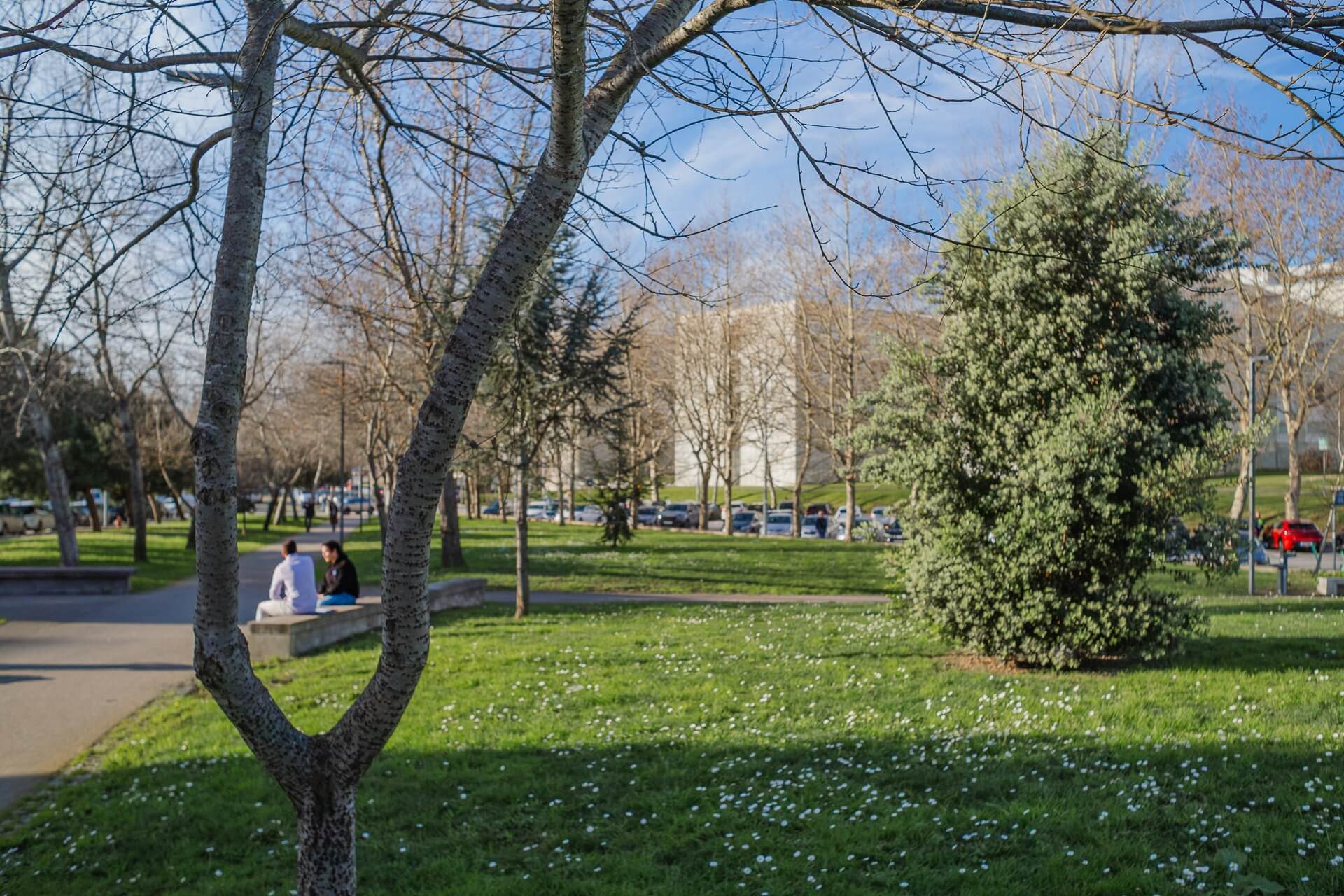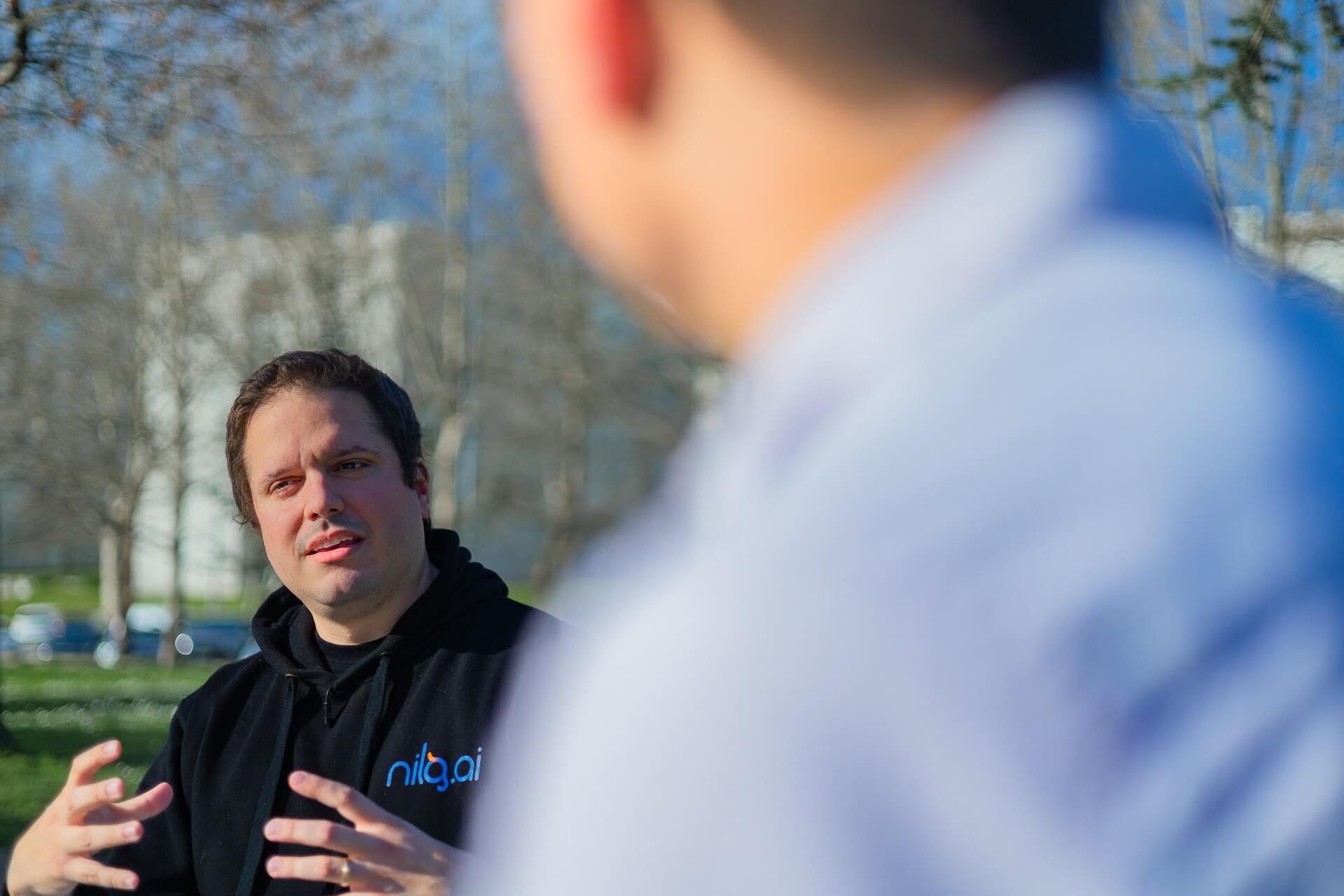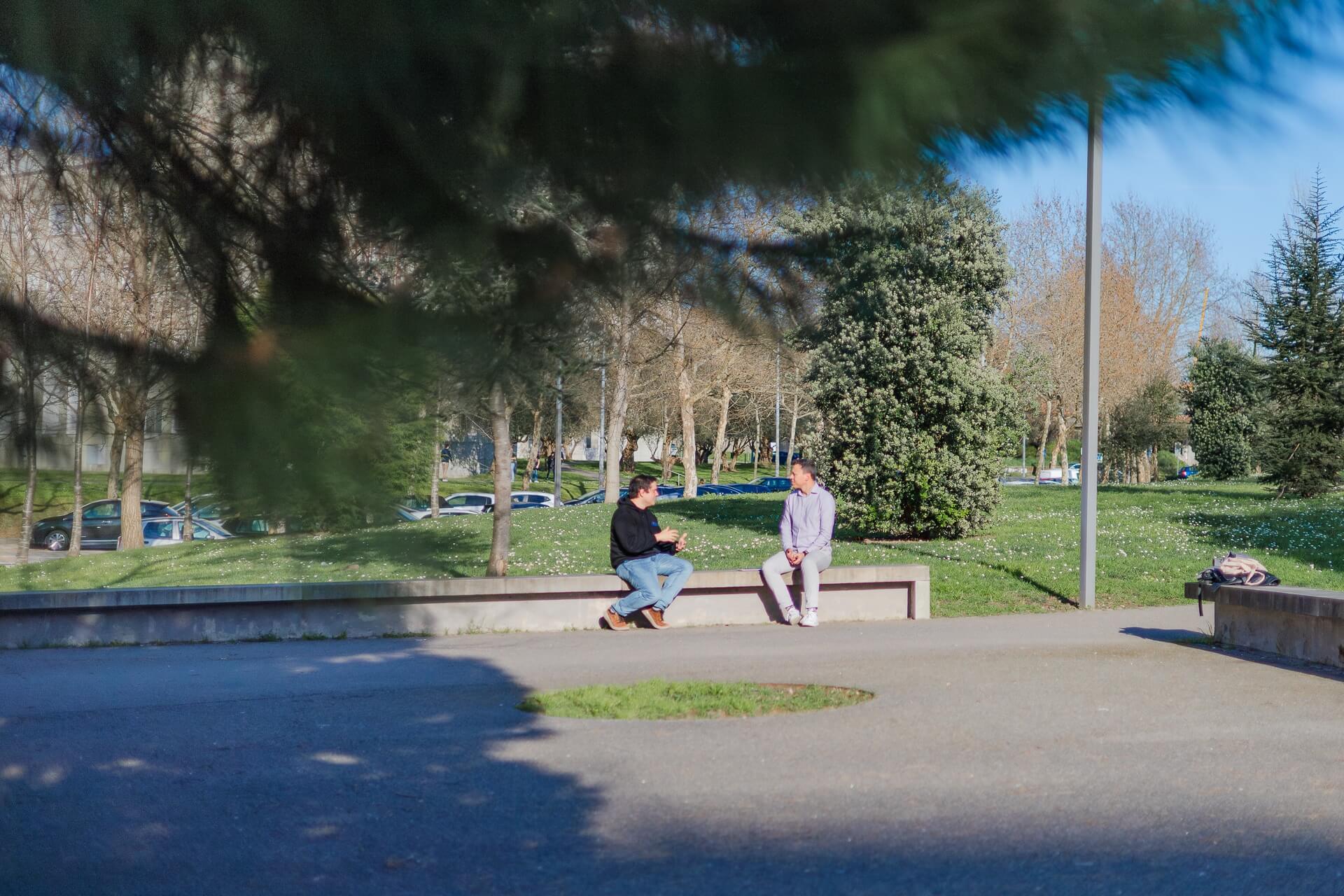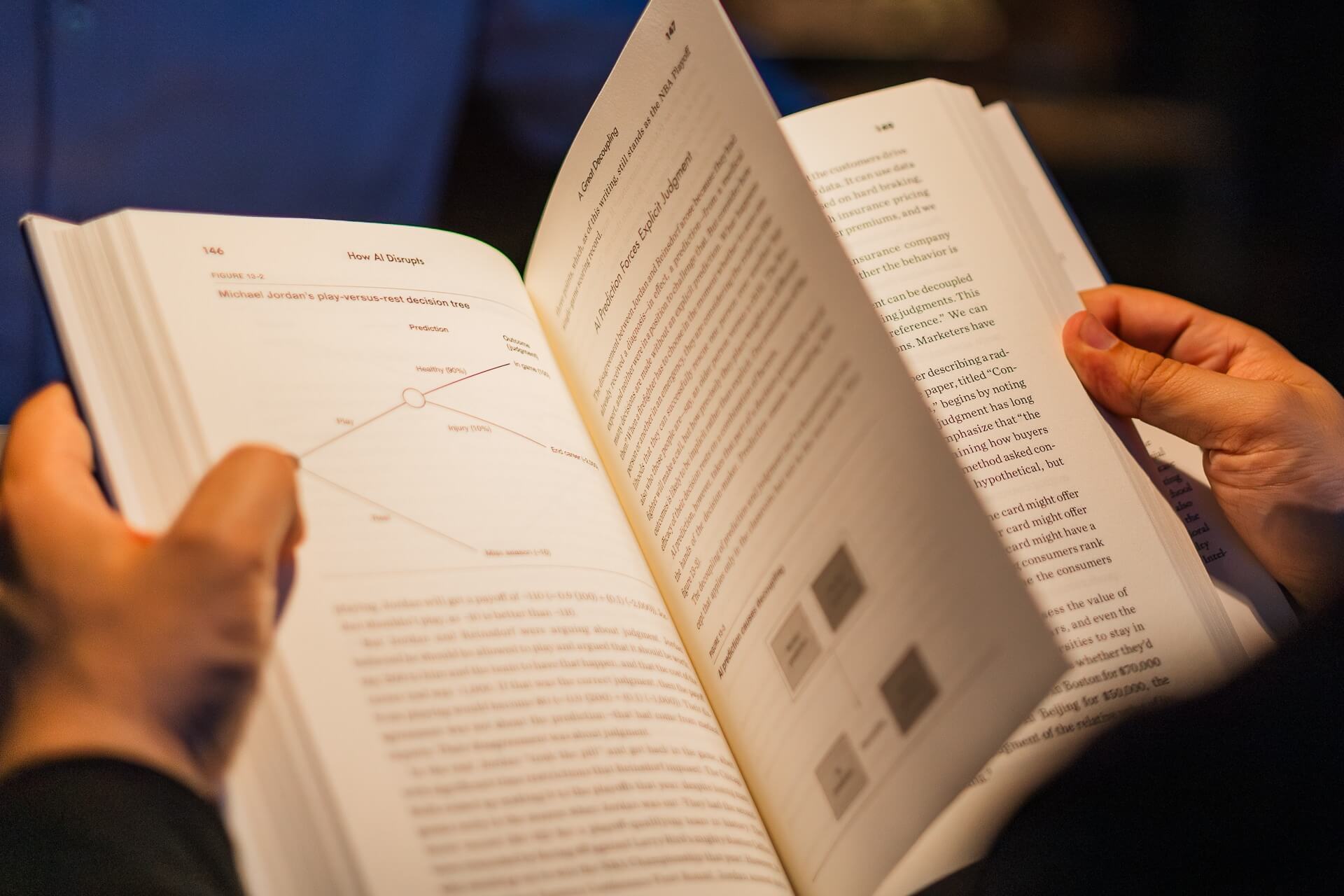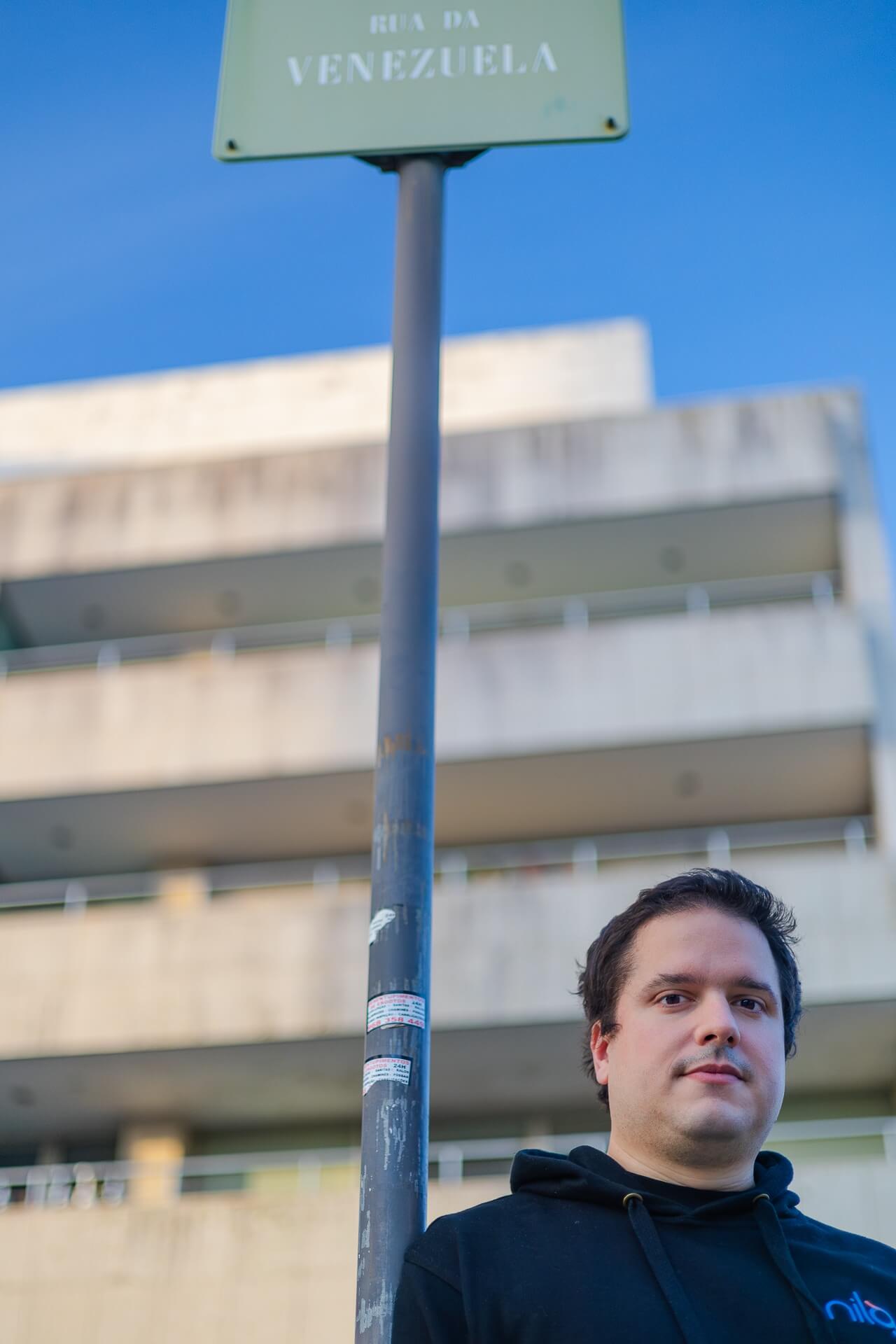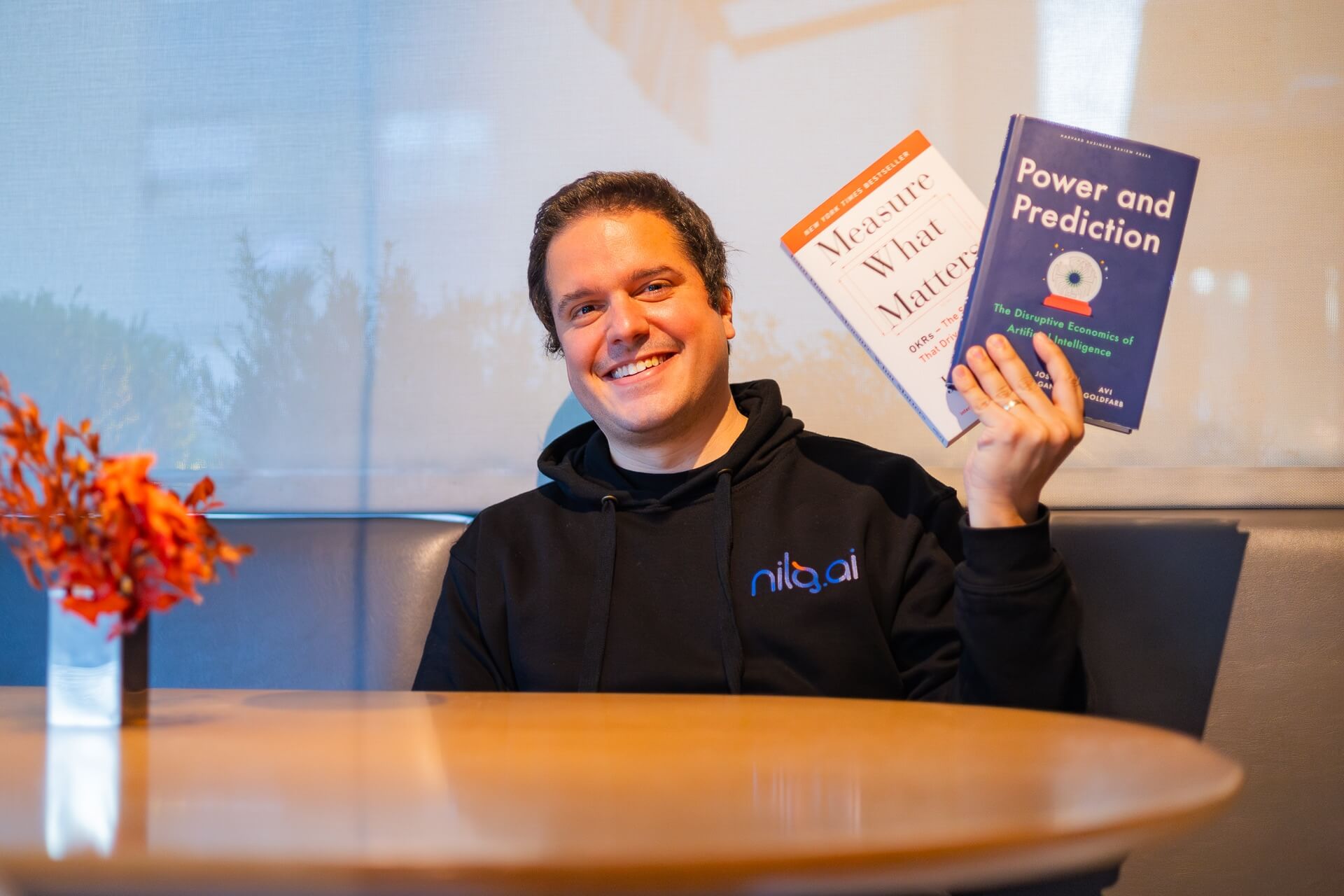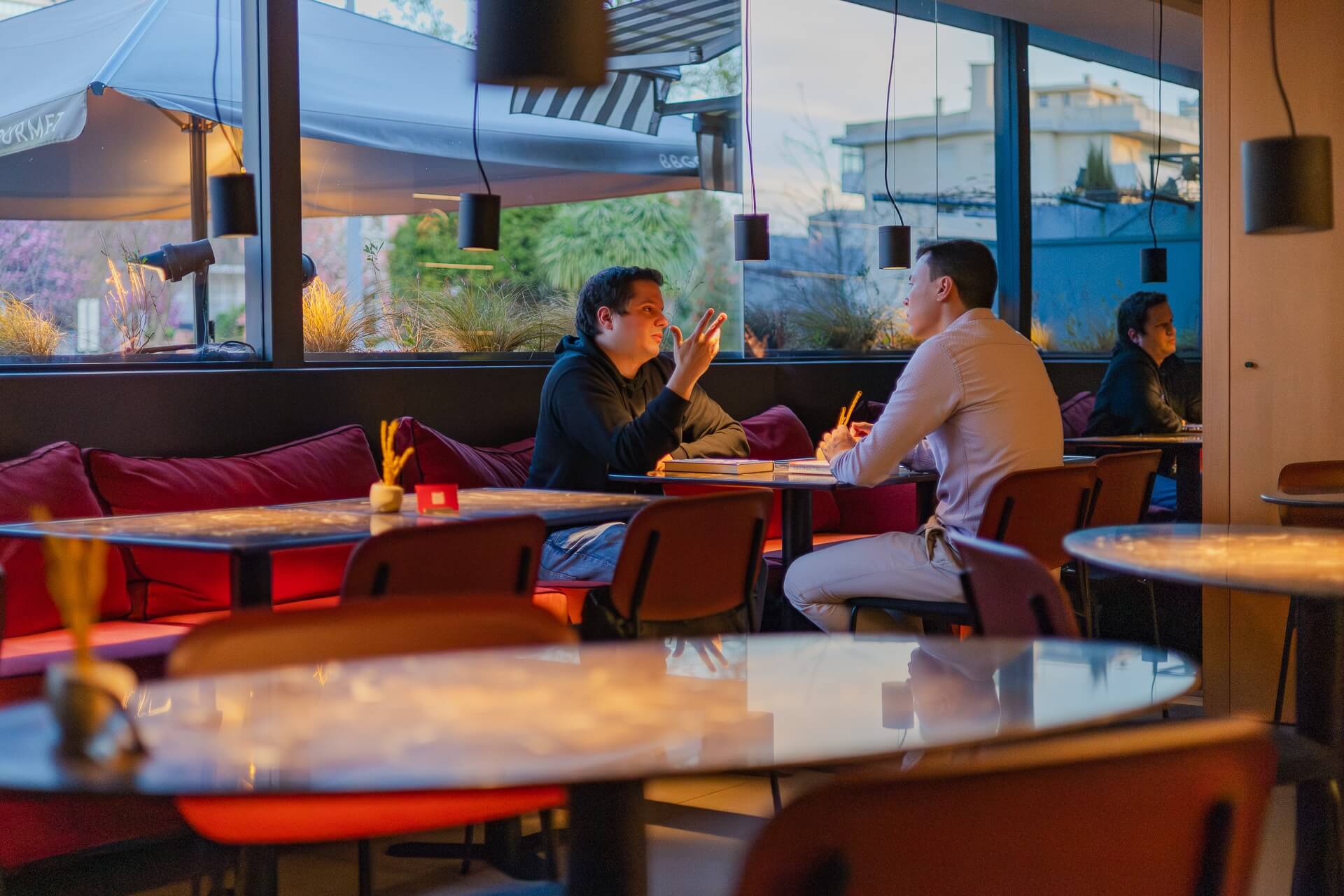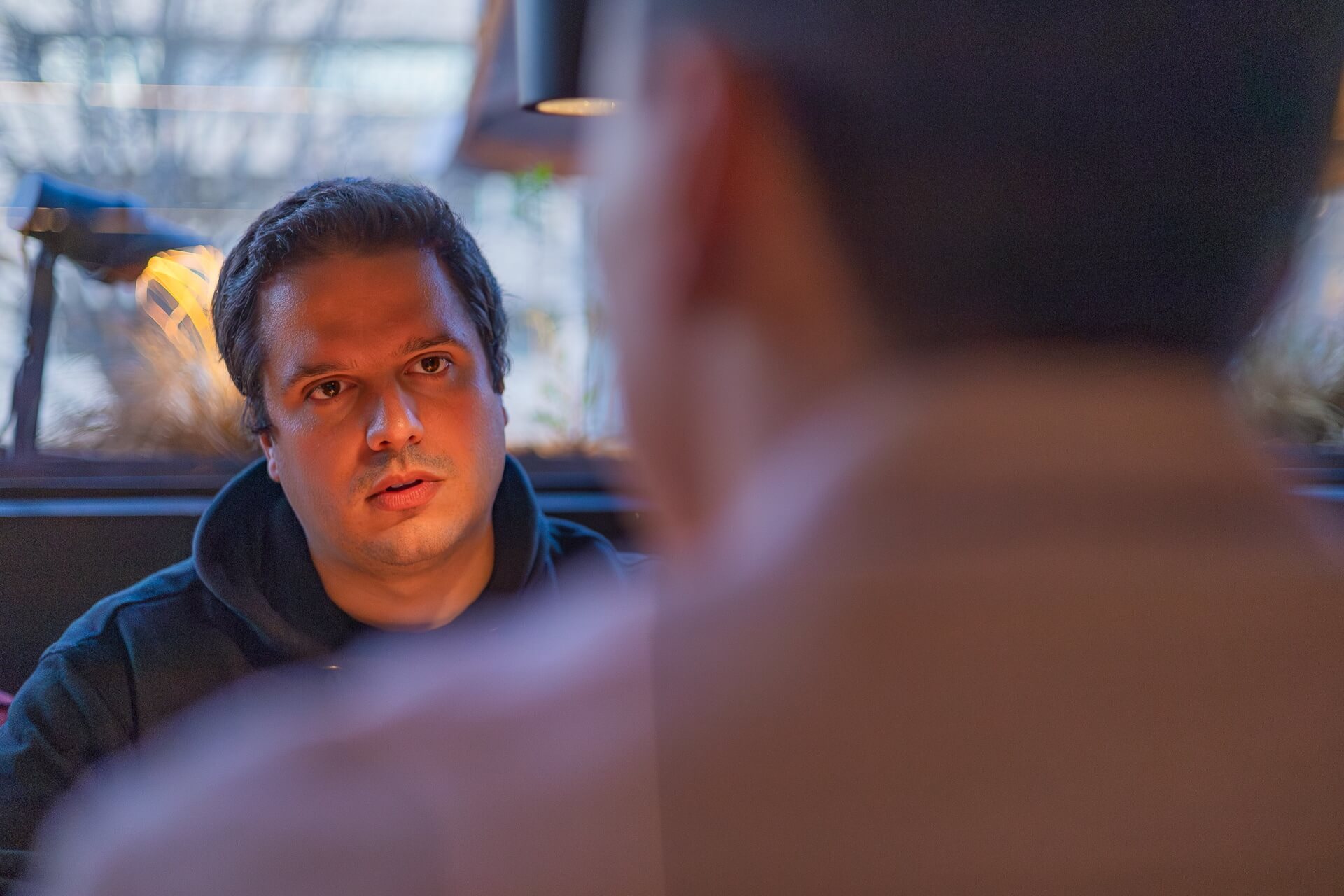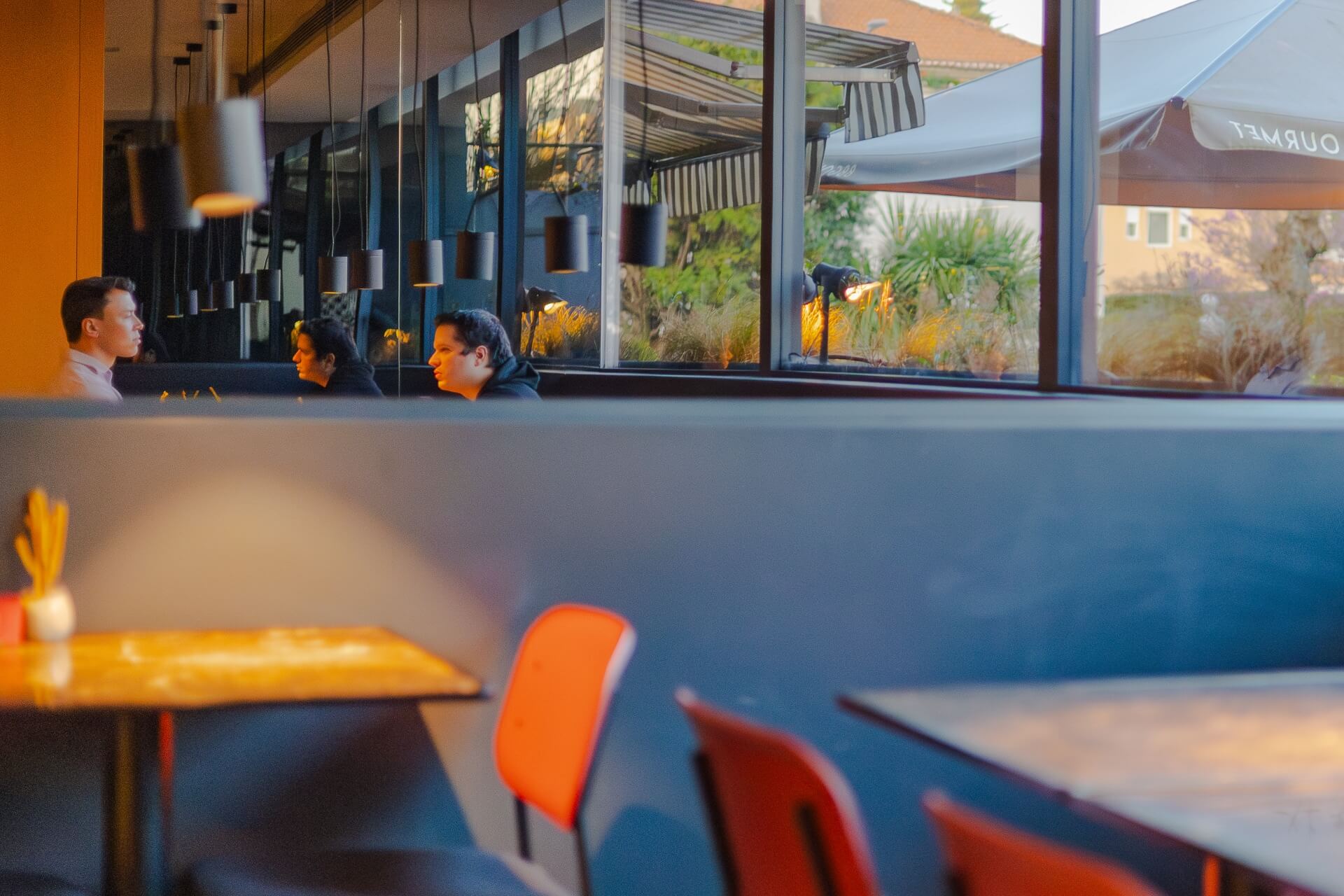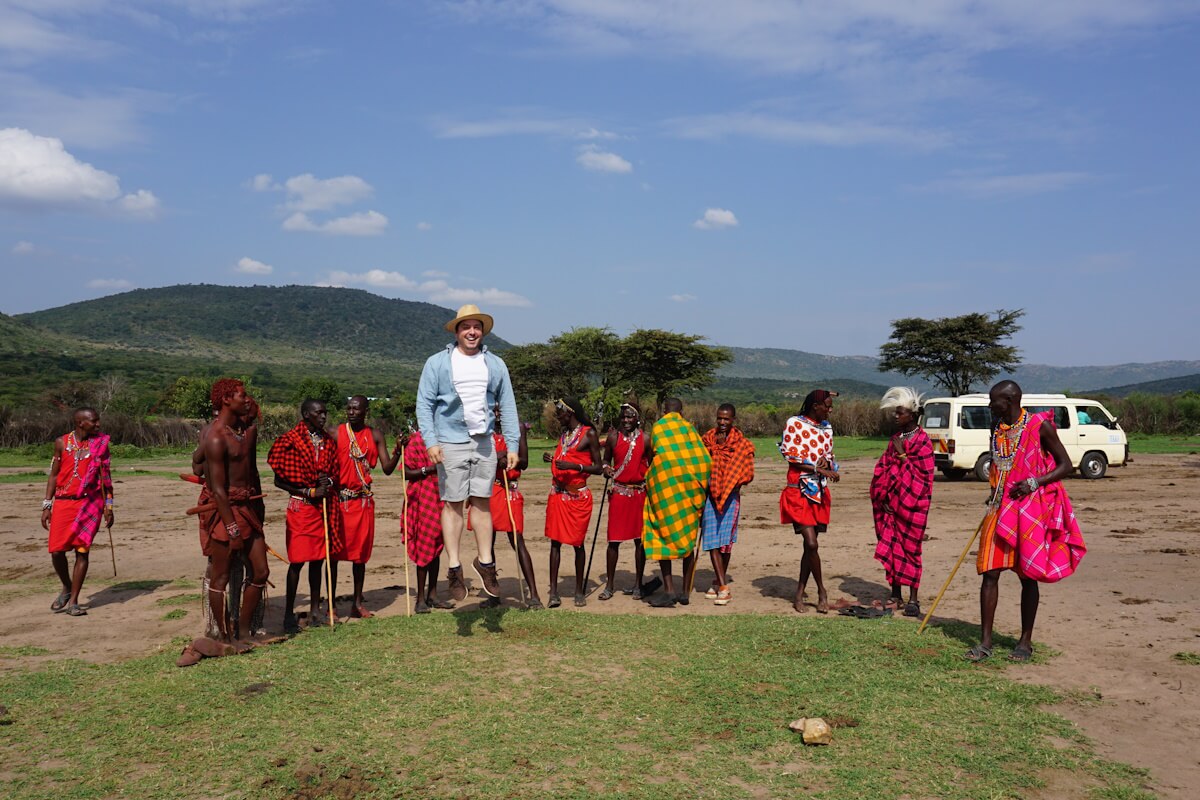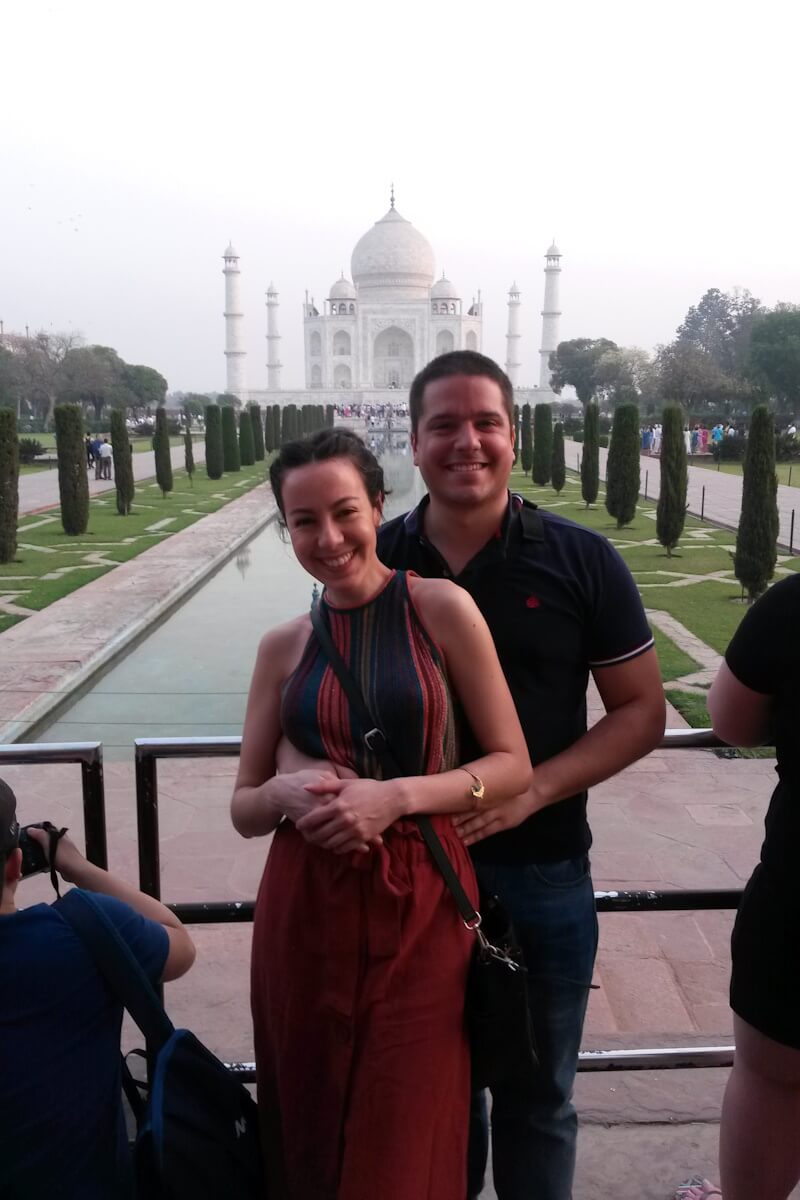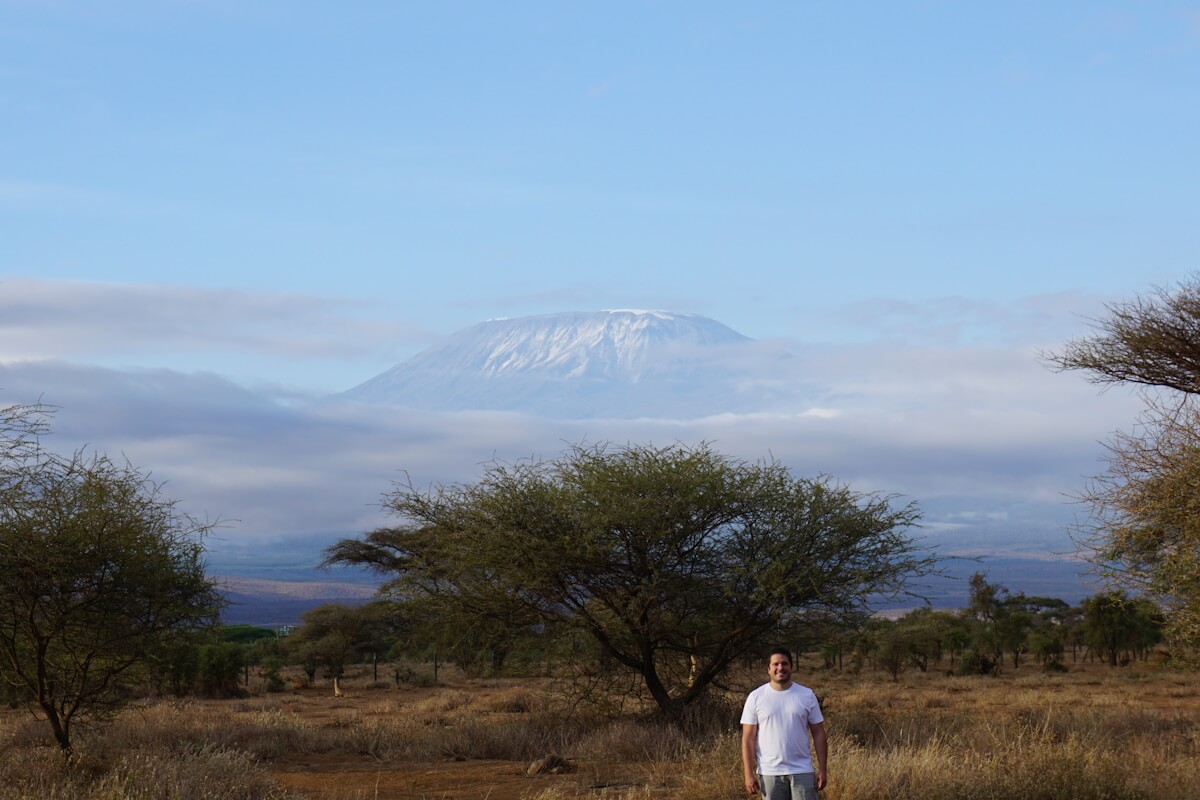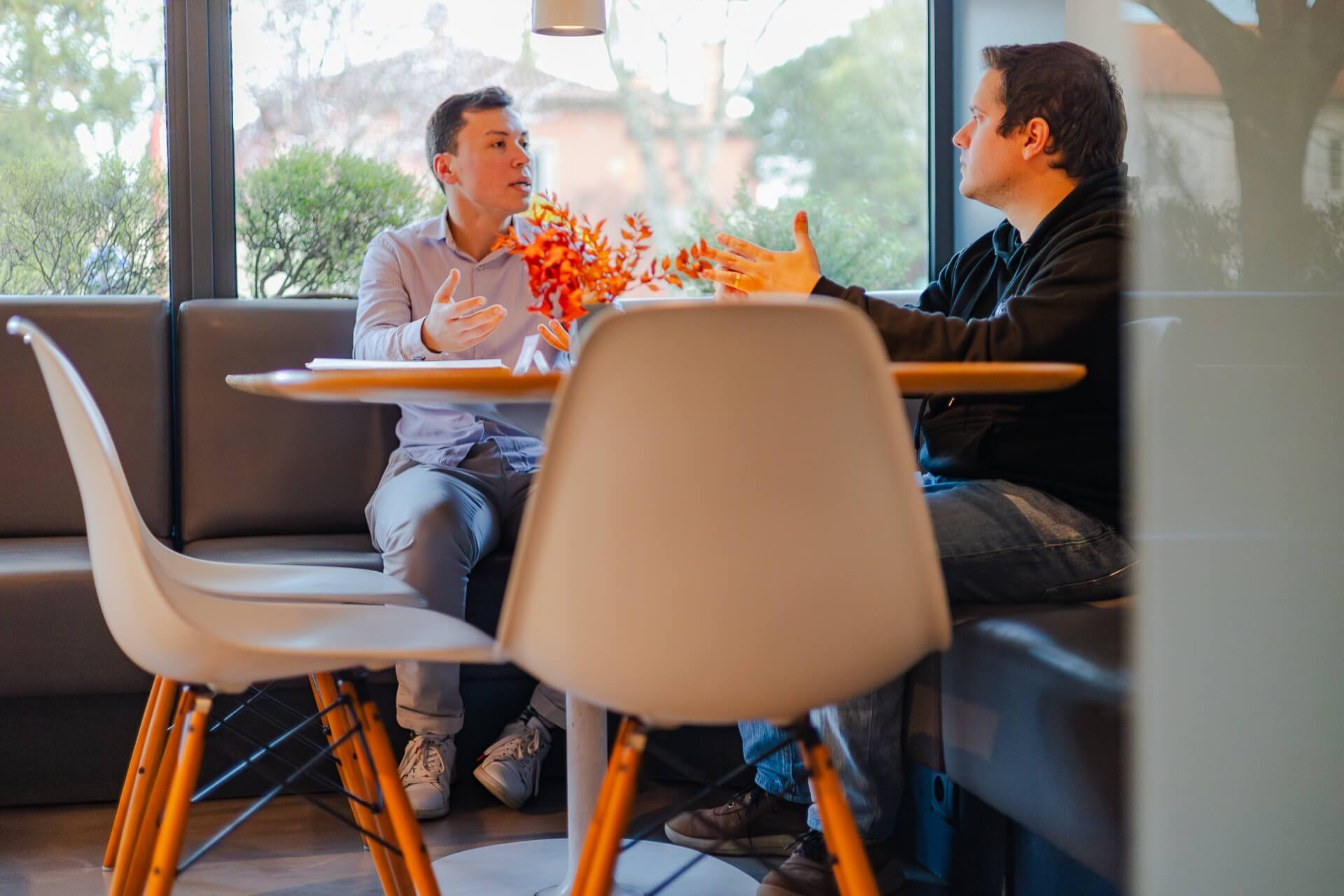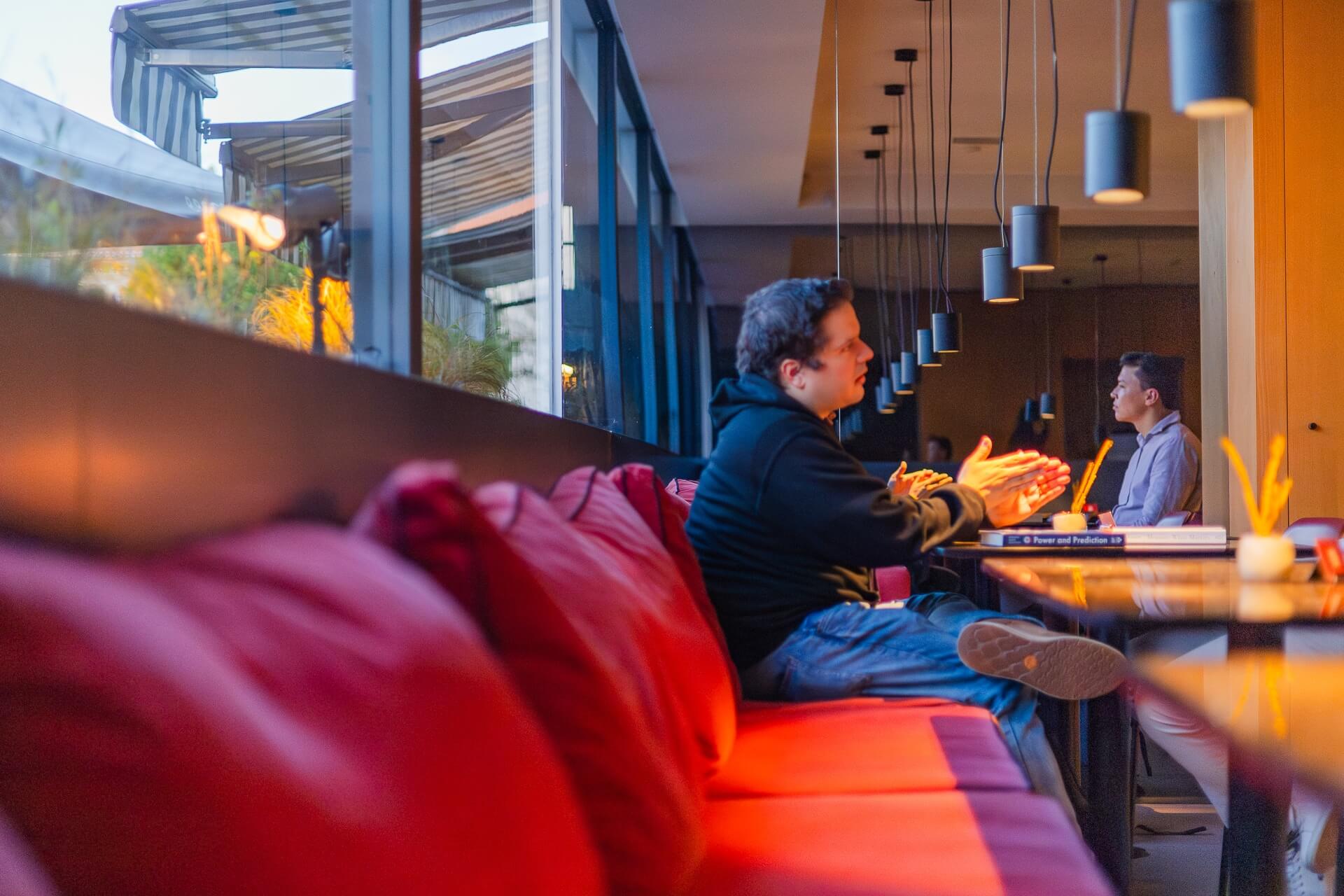Kelwin Fernandes: “When most daily tasks are automated with AI, the relevance of thinking will be much more significant”
Kelwin Fernandes: “When most daily tasks are automated with AI, the relevance of thinking will be much more significant”
Kelwin Fernandes is the founder of NILG.AI, the company that wants to be the standard of Artificial Intelligence worldwide, on a journey that began in South America and continues now in the country that claims to be the centre of the world, at a time when everything in its life is growing. From the countless hobbies as a child to The Hobbit as the first book he read, from the legacy he wants to leave for his family and company to the "Inside the Office" mantra he tries to apply in the countless trips he makes, don't miss this edition of Out Of Office with the most Portuguese Venezuelan in the city of Porto!
Kelwin, what is NILG.AI?
I founded NILG.AI as an artificial intelligence consulting company, and our vision is to be the standard for the Artificial Intelligence (AI) option in companies. We help company managers optimise processes using AI, but wanting to be the standard option, we focus a lot on creating best practices and helping to think about making decisions based on what AI gives us.
And how did it all start?
I got to know Artificial Intelligence 15 years ago, in 2009, well before it was all it is today. I started as an AI freelancer and became a consultant in 2018. I finished my PhD and decided to found the company as a consultant, as a software house in the area of AI, initially focused on the implementation and, more recently, strategy.
And you founded NILG.AI with someone else or alone?
I founded it with my wife; we are the two founders. She takes care of the operations, and I take care of the management of the company and the team. We are now six full-time people, and then we have an average of 30 freelancers who support us in realising projects. Working with external partners allows us to have the scale to have a team of six people, work with companies of 10 thousand people, and be able to respond to these projects.
Where did this idea of creating the company come from?
There was no rosy dream of founding the company. I think the classic story of the book The E-Myth was applied, where it says that when the technician is good at doing what he does, he thinks, “Why not do this as a consultant, on a freelance basis?”. Things started to get bigger, and only recently, a year and a half, two years ago, we began to see this with a 20-year perspective of the future, and not just as a consulting company, which is not lacking in the market. We have defined that we want to be the standard of Artificial Intelligence. We created a YouTube channel for the company with 58 thousand followers. Still, only recently have we realised how to enhance our business in the long term.
What was the primary motivation for creating such a business model?
I came to Portugal from Venezuela in 2013, got a PhD, and got away from my country’s problems. I had some time to think about what I wanted to do. As I have a great programming background, it would be easy to do consulting because it is the easiest business to undertake. A good technician in what he does needs very few tools to start a business and have a machine working organically, capable of creating cash flow. Creating positive cash flow with consulting is easy, but it is challenging to scale the business. So, I thought it might be an excellent foundation to start from, but now that we want to be the standard for AI, we need more investment in all aspects of our business.
“Creating positive cash flow with consulting is easy, but it is challenging to scale the business”
In your journey as a consultant, which companies have you worked with?
Our business model is consulting focused on the strategy part of AI. We have strategic plan templates, where, month by month, we help companies define AI strategic plans and then the pure and complex implementation of those projects. In terms of clients, we are proud to have worked with some of the largest companies in the world… Continental, in the automotive area, with Metro do Porto, with Vonovia, the largest real estate company in Europe, has more than half a million apartments. More recently, we started working with TUVNord, which is perhaps known to a few people, but if you have a device, they have probably had an audit done on it. We also work with Iqony, a kind of EDP in a region of Germany, so we have been working with large corporations, and I think that what has allowed us to do this is precisely this methodology, thinking about strategy, thinking about how to work with AI for the benefit of companies, and not just being a software development company.
And how did these opportunities come about?
A lot of open innovation programs, open calls. We bet a lot on open innovation programmes because AI is still very much worked on from within the innovation departments of companies, and it is something that needs some work. Although we don’t have a “plug and play” model, which is something that also needs some work, we have opted for an open innovation model that easily connects corporations to startups, and we have a business model based on consulting; it becomes easier for us to adapt our value propositions to these big corporations. And many of these opportunities have arisen in these open calls.
What do you think of the fears surrounding Artificial Intelligence?
I believe we are a long way from a present where these fears become a reality. In terms of artificial general intelligence, we’re as far along as ever, but clearly, there’s a potential for giant disruption. Not because there will be a cyberattack that will overwhelm us all but because of the change in the labour market that will happen. When most daily tasks are automated with AI, the relevance of critical thinking and decision-making will be much more significant than before. And I wonder if schools and colleges are training for critical thinking. To follow processes, yes, they are forming, but following processes is what machines are good at doing. At an educational level, we must rethink the thinking we instil in people. Still, artificial intelligence can be a tool that helps us solve problems. Just as a car is a tool, electricity is a tool, and if we should diverge or converge from what AI does… We should learn to use it to solve our problems more efficiently. Problems will continue to require a response from us, but that decision can best be made based on our information, and that’s what AI can give.
Parallel to this, you have also developed SafeJourney. Tell me about that project.
SafeJourney is a mobility index for people on wheels. The intention is that every street in the world has a mobility index for people with reduced mobility, showing what limitations exist if someone lives in a particular area and what obstacles will be encountered in their surroundings. We developed the project for the Lisbon City Council and are expanding to other cities, such as Porto and other European metropolises. It is a project with an exciting ambition to create a mobility index for people in chains.
And can it not be used in any other area, or is it limited to this applicability?
The project allows us to explore other aspects. We are now developing the same project in a context of open innovation for garbage collection; that is, we want to create an index together with Re-Source, an open call from Algar, which took place recently, which gives indicators of how easy it is to collect garbage at one point or another. This SafeJourney infrastructure has allowed us to expand to other areas, and we are considering how to develop the project. We have the mobility vertical, but we are looking at how we can have other verticals of this kind.
You are a very active person on social media in promoting the company. Is it one of the tools you use to enhance your growth?
We can do this in several ways. If we want to be the standard of the AI option in companies and for everyone in the world to implement AI in the way that we suggest, which is the one that we believe will bring the most success, one of the ways is to do the “little ant” work, to share what we do. Then, our YouTube channel helps a lot. In one year, it reached more than 50,000 subscribers, and by the end of the year, we should easily have more than 100,000. It’s a job to show people our insights. Another way is to prove to companies that our methodology allows us to have predictable results from the return that AI can bring. All the projects we have with clients are also proof of this.
“When the founder can get out of the processes is it because he has a project that adds value”
Your success can also be measured by the awards you have won. Any that you can highlight?
We work a lot on open calls, and something we are very proud of is that we have a record of open innovation challenges won from the “Hands on Data” initiative in Germany. In 2022, we won two of the six challenges; in previous years, we had already won twice. Winning these programs gives you a direct channel to work with big companies, and that’s a good thing.
What do you consider to be NILG.AI's greatest achievement?
I think it was me getting out of operations and getting out of projects. Only when the founder can get out of the processes is it because he has a project that adds value. It’s not just the founder juggling (laughs), and that’s because of our methodology. On a more external level, probably the first “Hands on Data” we won. It paved the way for collaboration with international big corps.
And any less positive moments in this journey?
The COVID phase was quite difficult. I created the company at the end of 2018, and in May 2019, I started hiring the team. We had the team assembled at the beginning of 2020, and that’s when the pandemic came. They cancelled all the projects, and we’re talking about a company without funding because the funding came from the company’s operation; we didn’t even have a sales system. With no projects, that was the most challenging moment, but we managed to get through it.
In between, the connection to UPTEC emerged. How did it happen?
I did my PhD at FEUP, and I’ve always been very connected to the ecosystem. AI is such a technological and innovative area, so it makes perfect sense to be involved here, within the ecosystem of UPTEC and U.Porto.
What are the next steps for you as a company?
It’s scaling. We already have the methodology well structured and processes well defined, and now what remains is to really scale the size of the operation.
At Rua da Venezuela, in Porto, we continued the conversation with Kelwin Fernandes, whose connection to Portugal comes from the cradle. The emigrant family in the South American country meant that the Portuguese roots were always present in the growth, whether through the folkloric ranch, the cod eaten at home, or learning the Portuguese language that was a priority from an early age.
You were born in Venezuela but have a very strong connection to Portugal...
I was born in Venezuela, but I’ve been Portuguese since birth. My whole family is Portuguese; my maternal grandfather is from the mainland, and my paternal grandparents are from Madeira, so Portuguese culture has always been alive at home. In fact, when I was in Venezuela, I felt Portuguese, and now that I am in Portugal, I feel Venezuelan. It’s a hilarious dichotomy. There was never a lack of cod at home at Christmas; I spent six years dancing at the folkloric ranch Portuguese in Venezuela when I was a kid. I have always been connected to Portugal; I learned Portuguese because my mother said I had to learn a foreign language, English or Portuguese, and I chose Portuguese. When it was time to emigrate, I launched applications to many countries, including Portugal, and what made the most sense was to come to Portugal. I’ve always had a solid connection.
And did you choose Portugal just because of that existing affinity?
I had a research grant that allowed me to move on to a PhD, so it made perfect sense to choose Portugal. Many people say we are on the periphery of Europe but at the centre of the world. Here, we can work with clients in the United States; we have a lot of shared time zones to work with them.
And how is that percentage of Portuguese vs Venezuelan?
Now that I’m here, I feel more Venezuelan than Portuguese (laughs). A person also gets to know many cultures and finds common ground. The more cultures a person knows, the more the lines that separate them are erased. I am a mixture of both.
And how did this aptitude for computing come about?
I was inquisitive, and my parents supported that curiosity. I did everything you can imagine; I went around in six sports, taekwondo, swimming, tennis, and basketball, I played a lot of bowling, and one of the things I did on the side was learn to code. In seventh grade, I learned to code and fell in love. My father also had small businesses in Venezuela, so I always mixed my hobbies with business. With what I learned to program, I started selling software to people who needed it at 14. Even small things, sometimes calculations that involved money and so on. This was transversal; I started doing graffiti and sold murals for my colleagues to have in their rooms (laughs). I’ve always had a more economic and business component linked to my hobbies.
Now it's harder to have all these hobbies...
Life is different after you’re an adult (laughs). Work, children and you end up leaving the most personal activities behind… I’m catching up on some of them, starting with the race, which I started again this year, and it’s something I want to take more seriously.
And do you reconcile running with anything else in your free time?
With reading, which is another hobby I’ve had since I was a kid, and which had been lost, at least, of a formal method… A person never stops reading, only changes the format in which he reads.
“I’ve always had a more economic and business component linked to my hobbies”
Where did this passion for reading come from?
It was something natural. When I was preparing for this interview, I thought about what would have been the first book I read, and it was J. R. R. Tolkien’s The Hobbit. It was the first book; I must have been seven years old when I read the whole first book. I even asked to take the TV from my room; I just wanted to read (laughs). I liked Lord of the Rings books, Stephen King books, more entertaining things that, over time, became more about business, sales, etc.
And is that what you like to read the most right now?
Yes, books focus more on business management, AI, and personal growth. I’m always reading a book from each of these three areas.
With so many books you read, you must have a pretty big collection...
I must have more than 200 books at will (laughs). Here in Portugal, I’ve been counting them; I have about 100 or so, apart from the ones who stayed in Venezuela.
And do you have room for everyone?
We divided it into several places (laughs). We have some in the office and others at home; they’re well divided (laughs).
“I like to read books by people with opinions contrary to what I think and believe”
Do you want to pass on those reading habits?
Yes. I have a son who turned three on January 31st, and he won’t go to bed at night without us reading him a short story. When we leave and pass by a bookstore, he always wants to come in; he asks us to see the available stories. I buy more than I can read (laughs). But yes, I want to instil in him this curiosity to learn new things about the world.
And reading turns out to be an excellent way to travel too...
Yes, it’s an excellent way to understand other points of view, which happens when you travel. I like to read books by people with opinions contrary to what I think and believe. I try to take advantage of even one idea or another, even if I disagree with most of the book.
And when do you like to read the most?
Between one meeting and another, those 10 minutes you have to have a coffee, you take the opportunity to read. When I get out of bed, I take the chance to read. You take the opportunity to read in the car or in the waiting room of a doctor’s office. It’s when I can, as long as there’s the habit. Habits to be habits have to be obvious and easy to do. I always have a book with me, and I’ve recently started to stick to other formats. Why do we scroll so much on social media? First, it’s appealing, and second, it’s easy. It’s always in your pocket, and you can also have books in your pocket with the Kindle. In the car, you can read a book. And one thing I do is never read just one book; I always have three or four simultaneously because sometimes a person gets saturated with a theme. If I hear about AI all day, I want to avoid reading that book at night, so I always have an alternative. I always have a book in the technical area where I work, a book in the business area, and a book in the area of personal growth, always simultaneously.
“We need to take more advantage of how much Portugal is at the centre of the world.”
Why do you like to read so much?
The return from reading is enormous because people have focused on putting together hundreds of thousands of hours of knowledge and experience in dense, summarised material. Sometimes, we underestimate the potential of that.
If you have an idea of how many books you have, do you know how many countries you have visited?
There were about 24…
And always at work?
This rubric is called Out Of Office, and I believe there is Out Of Office with Inside The Office, and vice versa (laughs). I always try to mix the two. As my wife is my partner, when we go on vacation, I try to see how we can explore this country we will visit in terms of business. In the same way, whenever we travel for work, I put in another day or two for leisure. As an entrepreneur, there is no separation between your personal and professional life. You must know how to live with both simultaneously and make the most of both. Whenever we go on a trip, my wife knows we are going another day or two to visit a local incubator and the local companies. As we have clients worldwide, when we visit them, we take the opportunity to take a few days of vacation to get to know the locals.
Is there a country that has made a particular impression on you?
Two, India and Kenya, both incredible. India for the diversity that exists within itself. You go to two different cities, and they are entirely different. It’s like a continent of its own. We were in 11 different cities in three weeks, so we saw very different things every two days. And Kenya because of the points it has in common with Venezuelan culture. It still has many roots from colonisation, but in gastronomic terms, from everyday life, I felt that when I was in Nairobi, I was in Caracas. Honestly, I felt like I was in Caracas; it was all so similar, which shocked me a lot. Of course, the safari areas are quite different, but I felt like I was in Venezuela in the city.
In all the trips you made, are there any that are similar to Porto?
Good question, I never thought about the topic… There are divergences and similarities in every city, but maybe… Copenhagen. It’s a dense, small city that lives its life intensely.
And is Porto the city where you see your future?
Honestly, I find it really hard to get out of here. We have a three-year-old son, and a daughter will be born, the first, now in April. We are delighted in Porto, I don’t see myself leaving Porto. Then, in professional terms, it is a very strategic location for other parts of the world. Not only Porto but also Portugal, the proximity to all the continents we have is an advantage. I think Portugal is at the centre of the world. We need to take more advantage of how much Portugal is at the centre of the world.
What is most indispensable in your life?
My children. I always try to be with them and involve them in the process. The component that I live most intensely is being a father. How do I become, with each passing day, a better father? I wouldn’t trade them for anything in the world. It wasn’t feasible for me if I had to go to another country with the company and stay away from them.
And where do you see yourself in five years?
In Porto (laughs).
Greatest virtue and greatest defect?
Virtue, I think, will be discipline and consistency. The ability to do the same thing without seeing results over months or even years is difficult, but most entrepreneurs can think long-term; that makes us entrepreneurs. Perhaps the biggest flaw is being too direct in relationships. Sometimes, I’ll give feedback; if I think you’re doing something wrong, I’ll objectively say my point of view in the feedback I give.
Do you have a favourite word?
Legacy. The main goal is to always leave a legacy, whether in the way of thinking or being, in the resources and values you leave to your family… Sometimes I think, “What if I died today? How am I supposed to live today, assuming this was my last? What did I leave for my children? What would be my legacy?” That’s my favourite word.
And is there a date that is special to you?
The day I emigrated, also the day I left home, is a special date. That day, I went from being a young person to an adult. But there’s one that’s more important than that… The day I knew I was going to be a dad. It wasn’t even the day my son was born, but the day I knew I would be a father. Something biological changed in me as if they had inserted a “provide for the family” chip, a paternal instinct; I don’t know how to explain it. I had a life before and after that day, and it coincided with when I decided to leave the company’s field operations. If I want to be with my family, I can’t be aware of the project deadlines for the projects’ clients; I had to leave that aspect and assume the position I have today. That was the first moment, and now the second one also happened when I found out that I was going to be a father for the second time when I decided that I was going to focus on scaling the company. Let’s see what will happen in the third child (laughs).
Finally, tell me three things you would like to do in life.
I’m trying to be healthier and improve my lifestyle daily. I want to accumulate wealth and make the company something more significant and more prominent that serves to fulfil our mission. And I want to be a person with more resources. I want to learn more to solve my problems and give my family a better life.
February 29, 2024
